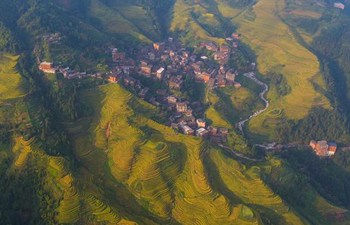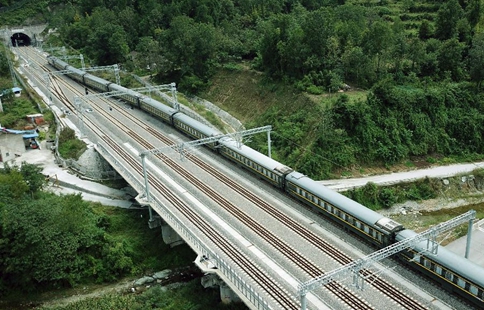NAIROBI, Sept. 29 (Xinhua) -- Land degradation is to blame for food insecurity in Eastern Africa region, a Kenyan scientist said on Friday.
Eunice Wangui, a senior Geographic Information Systems (GIS) technician at the Regional Center for Mapping of Resources for Development (RCMRD), African think tank on space science, said a study being done using satellite data reveals that unsustainable human activities are driving land degradation.
"Demands on land for economic development and pressures from increasing population are leading to unprecedented land use change that in turn leads to food insecurity," she told delegates attending a space science conference in Nairobi.
Wangui said that RCMRD did a land degradation assessment in Kenya, Uganda, Tanzania, Djibouti, Somali, Sudan, Ethiopia, South Sudan Eritrea, Rwanda and Burundi, and found that Ethiopia, Kenya and Burundi are badly affected.
She called for land reclamation strategies in the three countries and the region in general, especially within the wetland areas that are badly affected by human encroachment.
"This problem is to blame for a loss in land productivity with impacts on livelihoods and the economy," Wangui added.
She disclosed that RCMRD has shared the maps generated with various relevant government agencies in the Eastern Africa region to enable them to make evidence-based decisions related to national and regional ecosystem planning.
The RCMRD findings that have been generated since the study started in 2013 are currently helping support policy review and harmonization on land development in the region.
The region that has a population of 230 million people has been facing food insecurity and drought occasionally.
Unsustainable human activities that take place in already fragile areas and that are aggravated by natural disturbances such as drought or flooding lead to land degradation and thereafter desertification.
"We need to enhance the use of earth observation data for improved decision making on sustainable natural resource management," she noted.
The Eastern Africa region's economic mainstay is agriculture, both livestock and crop production, which provides the basis for food supplies and export earnings, as well as employment for over 80 percent of the population.
The agricultural sector (in its broadest sense) has a significant contribution to make to the economic development of the region, generating nearly 70 percent of export earnings.
















